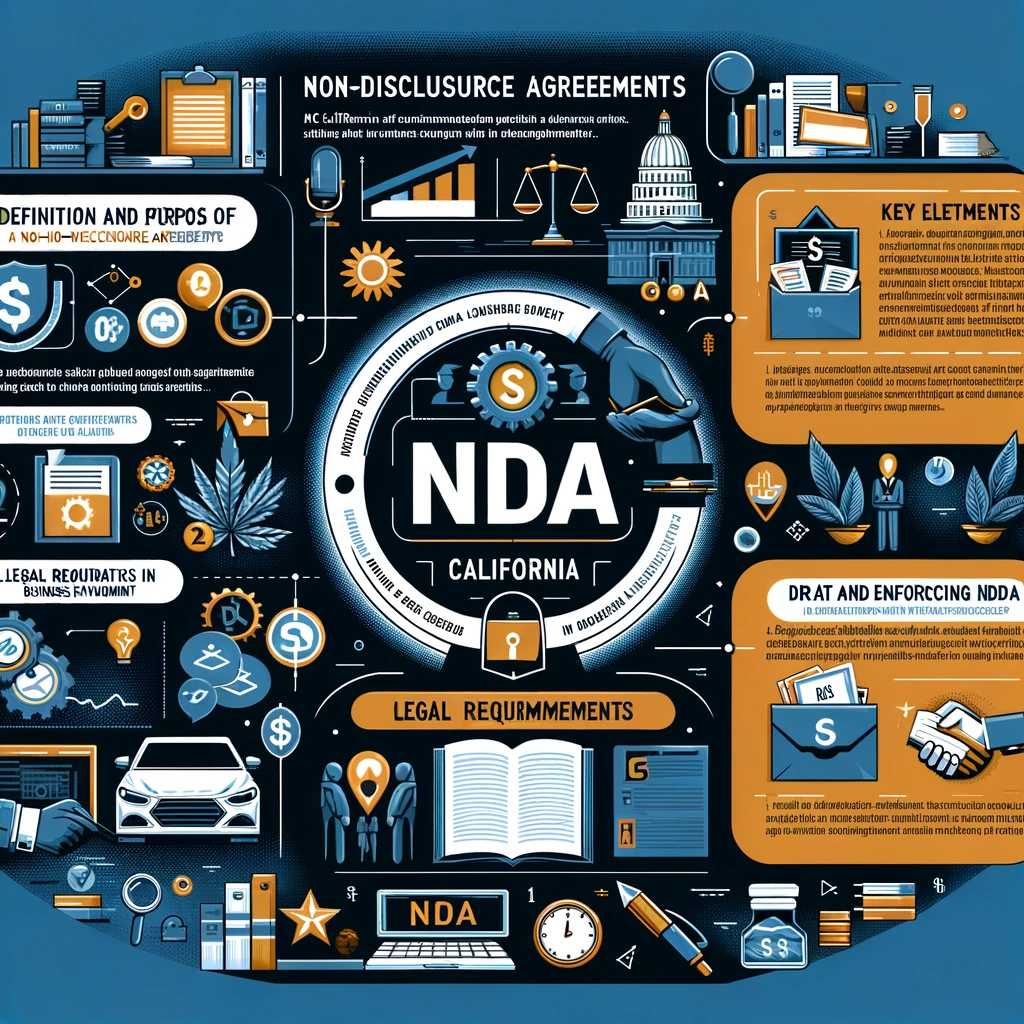
In the competitive landscape of California's economy, Non-Disclosure Agreements (NDAs) are essential tools for protecting sensitive information. From Silicon Valley's tech startups to Los Angeles' entertainment industry, NDAs help maintain confidentiality in business transactions, employee relations, and partnerships. This article delves into the nuances of NDAs within the Californian legal framework, offering insights into their importance, key elements, and enforcement, supplemented with authoritative .gov, .edu, and Wikipedia resources to ensure credibility and depth.
A Non-Disclosure Agreement, often termed a confidentiality agreement, is a legal contract between two or more parties to keep certain information confidential. In California, the Civil Code and Business and Professions Code outline the legal basis for NDAs, emphasizing their role in protecting trade secrets and proprietary information.
An effective NDA should clearly define its scope, including:
The California State Bar provides guidelines on drafting legal documents that can help in formulating an NDA.

California law is specific about what constitutes a legally enforceable NDA. For instance, the California Civil Code Section 3426-3426.11, part of the California Uniform Trade Secrets Act, sets forth provisions for protecting trade secrets, directly impacting NDAs' enforceability and scope.
Given the state's innovation-driven economy, NDAs are crucial for:
The U.S. Patent and Trademark Office (USPTO) and Wikipedia's page on Trade Secrets offer further insights into intellectual property protection, relevant to understanding NDAs' value.
When drafting an NDA in California, it's essential to consider the balance between protecting confidentiality and ensuring the agreement is not overly restrictive, as per California Business and Professions Code Section 16600, which limits the enforceability of non-compete clauses.
Enforcing an NDA in California can be challenging, especially if the agreement is deemed too broad or violates public policy. Courts may refuse to enforce NDAs that restrict an individual's right to work or that are against public interest. Resources such as Stanford University's Hoover Institution provide case studies and legal analyses that can offer perspective on enforcement challenges.
Recent legislative changes and court decisions have impacted how NDAs are viewed, especially concerning harassment and discrimination claims. The Silenced No More Act, for instance, limits the use of NDAs in settlement agreements of harassment or discrimination claims, reflecting California's stance on workplace rights and transparency.

Create & Review Your Contracts 10x Quality and Ease
Lawyer-level AI handles all your contract needs, with real lawyers providing safeguarding support

Non-Disclosure Agreements are vital in California's dynamic business and legal landscape, providing a mechanism to protect sensitive information while fostering innovation and growth. By understanding the legal requirements, drafting effective agreements, and navigating the complexities of enforcement, businesses and individuals can safeguard their interests and maintain confidentiality in their operations.
Incorporating resources from reputable .gov, .edu, and Wikipedia sources, this guide aims to offer a thorough exploration of NDAs in California, ensuring readers are well-informed about their formulation, importance, and legal context.
Create & Review All Your Contracts Online With LegalNow AI